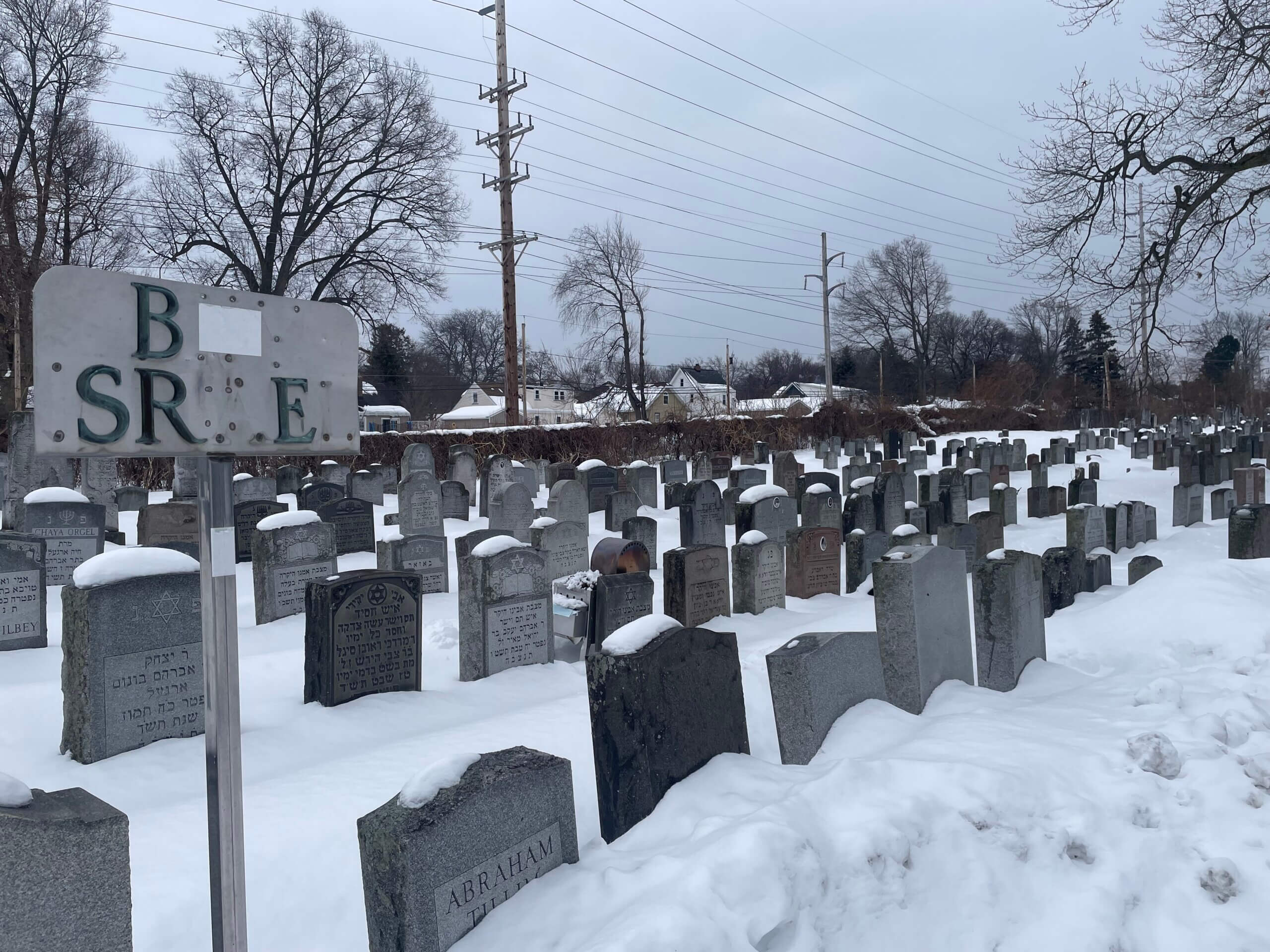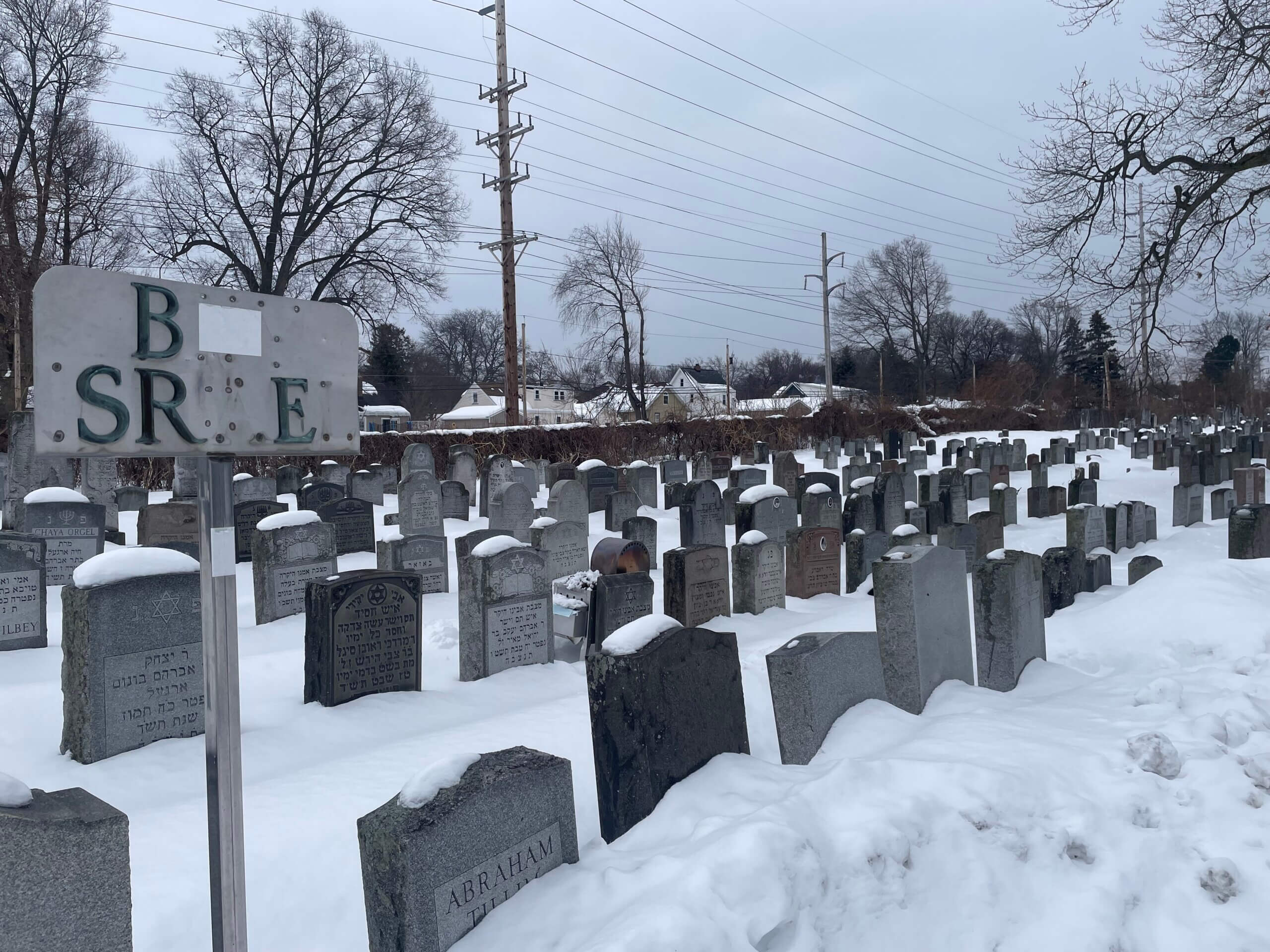Uncategorized
Julie Benko, ‘Funny Girl’ standby star, to join Broadway cast of Barry Manilow’s ‘Harmony’
(New York Jewish Week) – Broadway actress Julie Benko won’t be out of a job when “Funny Girl,” in which she plays the Jewish performer Fanny Brice, closes in September.
Instead, Benko, 34, will join the cast of Barry Manilow and Bruce Sussman’s forthcoming Broadway musical “Harmony,” which is set to begin previews Oct. 18 and open Nov. 13 at the Ethel Barrymore Theater, Playbill is reporting.
The new role, like the one in “Funny Girl,” has Benko playing a Jewish woman in a musical about performers from a century ago. “Harmony” follows the true story of the Comedian Harmonists, a popular singing group in 1920s Germany consisting of both Jews and non-Jews. The group was banned from performing in 1934, the Jewish Telegraphic Agency reported at the time, for including two “non-Aryan” singers.
Benko, who is Jewish and got her start on stage at her local Jewish community center, is playing Ruth Stern, the Jewish wife of a non-Jewish member of the Comedian Harmonists.
“It is rare to be offered the chance to be part of a Broadway show that resonates so deeply on both personal and political levels,” Benko said in a statement.
“Harmony,” which features music from Jewish legend Manilow and lyrics from Sussman, premiered in 1997 and was most recently staged by the National Yiddish Theater Folksbiene during a four-week run at the Museum of Jewish Heritage last year.
“We wrote the show we wanted to write, and we hoped that people would like it and that we would find a home for it. It was just a matter of getting it to New York,” Manilow told the New York Jewish Week ahead of the opening of “Harmony” at the Folksbiene.
The Folksbiene production went on to win “Best New Musical” at the 2022 Off Broadway Alliance Awards.
Since April 2022, Benko has appeared on Broadway as the standby for the Fanny Brice character in “Funny Girl,” a role originated by Barbra Streisand. Her first big step into the role was last June, when then-lead Beanie Feldstein contracted COVID-19 and missed several shows. Benko ultimately filled for Feldstein 26 times, then performed the role full-time last August after Feldstein left the show early and before “Glee” star Lea Michele took the helm in September.
Benko quickly became a fan favorite; according to the New York Times, “she has established herself in theater-loving circles as a performer worth seeing.” In an email to the Times, Michele called Benko “a savior” to the show, and since September Benko has performed the role every Thursday night.
Prior to her role in “Funny Girl,” Benko was a swing for the roles of Hodel and Chava in the 2015 Broadway revival of “Fiddler on the Roof.” As it happens, “Fiddler” was also the show that launched her career; at age 14, she appeared as Hodel in a production mounted by the JCC in Fairfield, Connecticut, where she grew up.
“I’ve covered eight roles in ‘Fiddler,’ and I feel like Fanny is more than all that put together,” Benko told the New York Times. “Plus Tevye maybe.”
—
The post Julie Benko, ‘Funny Girl’ standby star, to join Broadway cast of Barry Manilow’s ‘Harmony’ appeared first on Jewish Telegraphic Agency.
Uncategorized
Board of Peace Members Have Pledged More Than $5 billion for Gaza, Trump Says

A drone view shows the destruction in a residential neighborhood, after the withdrawal of the Israeli forces from the area, amid a ceasefire between Israel and Hamas in Gaza, in Gaza City, October 21, 2025. Photo: REUTERS/Dawoud Abu Alkas/File Photo
US President Donald Trump said Board of Peace member states will announce at an upcoming meeting on Thursday a pledge of more than $5 billion for reconstruction and humanitarian efforts in Gaza.
In a post on Truth Social on Sunday, Trump wrote that member states have also committed thousands of personnel toward a U.N.-authorized stabilization force and local police in the Palestinian enclave.
The US president said Thursday’s gathering, the first official meeting of the group, will take place at the Donald J. Trump Institute of Peace, which the State Department recently renamed after the president. Delegations from more than 20 countries, including heads of state, are expected to attend.
The board’s creation was endorsed by a United Nations Security Council resolution as part of the Trump administration’s plan to end the war between Israel and Palestinian Islamist group Hamas in Gaza.
Israel and Hamas agreed to the plan last year with a ceasefire officially taking effect in October, although both sides have accused each other repeatedly of violating the ceasefire. According to Gaza’s Health Ministry, more than 590 Palestinians have been killed by Israeli troops in the territory since the ceasefire began. Israel has said four of its soldiers have been killed by Palestinian militants in the same period.
While regional Middle East powers including Turkey, Egypt, Saudi Arabia, Qatar and Israel – as well as emerging nations such as Indonesia – have joined the board, global powers and traditional Western US allies have been more cautious.
Uncategorized
Why a forgotten teacher’s grave became a Jewish pilgrimage site

Along Britton Road in Rochester, New York, a brick gatehouse sits across from ordinary homes. Beyond it lies Britton Road Cemetery, its grounds divided into family plots and sections claimed over time by Orthodox congregations and fraternal associations, past and present. Names like Anshe Polen, Beth Hakneses Hachodosh, B’nai Israel, and various Jewish fraternal organizations are found here.
On the east side of the cemetery, a modest gray headstone draws visitors who do not personally know the man buried there, who were never taught his name in school, and who claim no personal connection to his life. Some leave notes. Some light candles in a small metal box set nearby. Others whisper prayers and stand for a moment before going. They come because they believe holiness can be found here.
The grave belongs to Rabbi Yechiel Meir Burgeman, a Polish-born teacher who died in 1938. He did not lead a major congregation or leave behind an institution that bears his name. And yet, nearly a century after his death, people still visit.
Over time, Burgeman has come to be remembered as a tzaddik nistar, a hidden righteous person, whose holiness is known through their teaching and daily life rather than through any title or position. His grave has become a place of intercession. People come to pray for healing, for help in times of uncertainty, and for the hope of marriage. What endures here is not an individual’s biography so much as a practice: the belief that a life lived with integrity can continue to shape devotion, even after the body has been laid to rest.
In life, Burgeman was not known as a miracle worker or a public figure. He was a melamed, a teacher of children, living plainly among other Jewish immigrants in Rochester’s Jewish center in the early decades of the 20th century. At one point, he was dismissed from a teaching post for refusing to soften his instruction. He later opened his own cheder, or schoolroom. There was no congregation to inherit his name, no institution to archive his papers. When he died, he was buried in an ordinary way at Britton Road Cemetery, one grave among many.
What followed was not immediate.
Remembered in return

The meaning attached to Burgeman’s resting place accumulated slowly. Stories began to circulate. People spoke of his kindness, his discipline, his integrity. Over time, visitors came. The grave became a place not of answers, but of belief. For generations, this turning toward the dead has taken this same form. It is not worship. It is proximity. A way of standing near those believed to have lived rightly, and asking that their merit might still matter.
In Jewish tradition, prayer at a grave is a reflection on those believed to have lived with righteousness, asking that their merit accompany the living in moments of need. Psalms are traditionally recited. Words are often spoken quietly.
I have done something similar too. Years ago, before I converted to Judaism and before I had the means to travel, I sent a written prayer through a Chabad service that delivers letters to the grave of the Lubavitcher Rebbe in New York. Someone else carried it. I cannot say with absolute certainty what happened because of it. Only that the practice itself made space for hope that I was seen, and that a prayer was later answered in ways that shaped my life and deepened my understanding of Judaism.
Burgeman’s grave functions in a similar register, though without any institutional frame. People come not because his name is widely known, but because the story has endured. Over time, that story gathered details. The most persistent involves a dog said to have escorted Jewish children to Burgeman’s cheder so they would not be harassed along the way by other youths. The dog then stood watch until they were ready to return home. The versions differ. Some are reverent. Some are playful. Some verge on the miraculous. The story endures because it names something children needed: care, in a world that could be frightening.
In recent decades, Burgeman’s afterlife has taken on a digital form. His name surfaces in comment threads and genealogical forums, passed along by people who never met him and are not always sure how they are connected. Spellings are debated. Dates are corrected. A descendant appears. A former student’s grandchild adds a fragment. Someone asks whether this is the same man their grandmother spoke of. No single account settles the matter. Instead, memory gathers. What once traveled by word of mouth now moves through hyperlinks.
The internet allows fragments to remain visible. Burgeman’s story survives not because it was officially recorded, but because enough people cared to remember it. In this way, his legacy resembles the man himself: quiet, unadorned, sustained by actions rather than declaration.

This story does not offer certainty. It is about remembering a life and asking if we might still learn from it and if, perhaps, it can bring us closer to faith. Burgeman left no grand monument. He left descendants. A grave. A life of Jewish values that continues to teach.
Burgeman did not seek recognition in life. After death, he became something else: a teacher still teaching, not through words, but through the way people continue to act on his memory. That is the lesson. Not any miracle. Not any legend. The quiet insistence that a life lived with integrity does not end when the casket is placed into the earth.
Some graves are instructions.
This one still asks something of us.
The post Why a forgotten teacher’s grave became a Jewish pilgrimage site appeared first on The Forward.
Uncategorized
Turkey Sends Drilling Ship to Somalia in Major Push for Energy Independence

Turkish President Tayyip Erdogan speaks during a ceremony for the handover of new vehicles to the gendarmerie and police forces in Istanbul, Turkey, Nov. 28, 2025. Photo: REUTERS/Murad Sezer
i24 News – Turkey has dispatched a drilling vessel to Somalia to begin offshore oil exploration, marking what officials describe as a historic step in Ankara’s drive to strengthen energy security and reduce reliance on imports.
Turkish Minister of Energy and Natural Resources Alparslan Bayraktar announced that the drilling ship Çagri Bey is set to sail from the port of Taşucu in southern Turkey, heading toward Somali territorial waters.
The vessel will pass through the Strait of Gibraltar and around the coast of southern Africa before reaching its destination, with drilling operations expected to begin in April or May.
Bayraktar described the mission as a “historic” milestone, saying it reflects Turkey’s long-term strategy to enhance national energy security and move closer to self-sufficiency.
The operation will be protected by the Turkish Naval Forces, which will deploy several naval units to secure both the vessel’s route and the drilling area in the Gulf of Aden and the Arabian Sea. The security arrangements fall under existing cooperation agreements between Ankara and Somalia.
The move aligns with a broader vision promoted by President Recep Tayyip Erdoğan, aimed at reducing Turkey’s dependence on foreign energy supplies, boosting domestic production, and shielding the economy from external pressures.
Bayraktar said Turkey is also working to double its natural gas output in the Black Sea this year, while continuing offshore exploration along its northern coastline. In parallel, Ankara is preparing to bring its first nuclear reactor online at the Akkuyu Nuclear Power Plant, which is expected to begin generating electricity soon and eventually supply about 10% of the country’s energy needs.
The current drilling effort is based on survey data collected last year and forms part of Ankara’s wider plan to expand its energy exploration activities both regionally and internationally.


